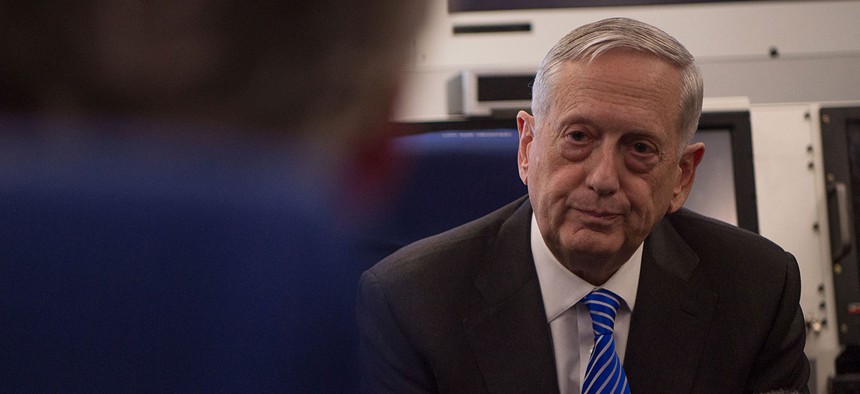
Sgt. Amber I. Smith/Army
Three Urgent Tasks for Trump’s National-Security Team
The administration needs a single line on various policies — but even more urgently, it must fill about 100 top federal jobs, says James Stavridis.
SAN DIEGO — Now that Lt. Gen. H.R. McMaster has filled out the top tier of President Donald Trump’s national-security team, here’s what needs to happen next: solidify U.S. policy positions on key issues, jumpstart a belated effort to fill second- and third-tier federal jobs, and start rehearsing the White House’s responses to likely challenges around the globe.
That’s the advice from James Stavridis, retired Navy admiral and former NATO supreme allied commander (and once a potential Trump cabinet member). Stavridis, who attended last week’s security gathering in Munich, said the new national security advisor and his peers — Defense Secretary James Mattis, Homeland Security Secretary John Kelly, and Secretary of State Rex Tillerson — must help forge a single Trump administration line on key policy issues.
“Europeans are very nervous about what they see as inconsistencies in foreign policy,” Stavridis told attendees at a naval conference here on Tuesday. He cited the new administration’s dissonant statements on the One China policy, the two-state solution for Palestine, support for NATO, and other issues. “[U.N. Ambassador] Nikki Haley makes a good statement on Russia, but then there is flirting with Putin out of the White House. All of this makes the Europeans nervous.”
Stavridis said that settling on a single public line on various policies was less urgent, but still important.
“What should we do? First of all, let’s give the administration some space,” he said. “They’re 30 days in, and they’ll need some time to get the gears meshing.”
What is urgent, Stavridis said, is finding the various deputies and assistants for the national-security leaders. As of Tuesday, the Trump administration has filled just 14 of 549 executive-branch leadership posts that require Senate confirmation, including more than 100 national-security related jobs.
“That’s starting to be very concerning,” he said.
Finally, Stavridis said, McMaster and his peers need to figure out what the likely first challenges to the new Trump administration are going to be, and start exercising some responses.
“We know North Korea is going to challenge us. We know that more Russian aircraft are going to buzz our ships, and eventually we’re going to shoot one of those down,” and there may be similar flashpoint events or close calls in the South China Sea, he said.







